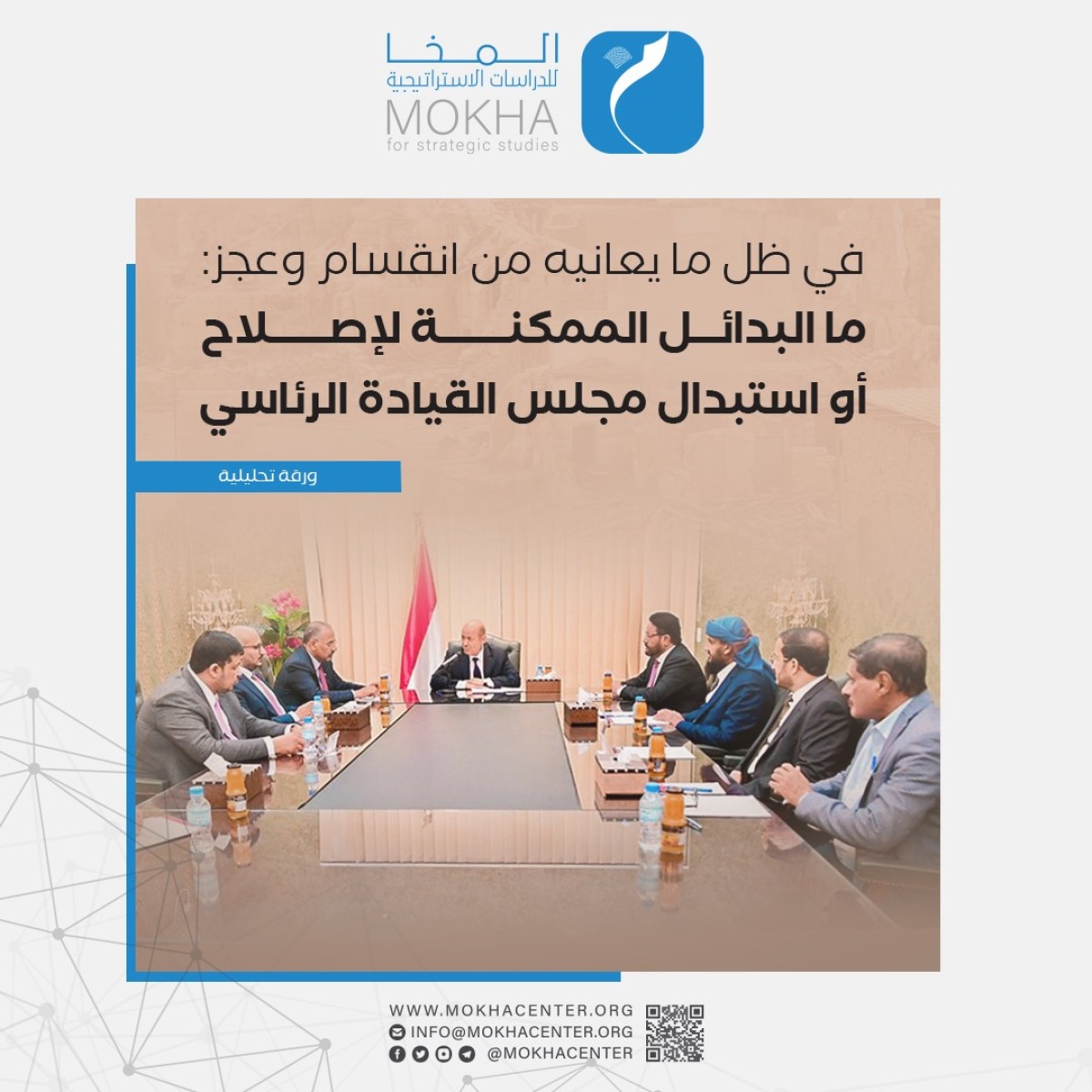Study: division, corruption and failure threaten the survival of the Presidential Command Council


A new analytical study issued by the Yemeni Studies Center revealed the escalation of invitations calling for the reform or replacement of the Yemeni Presidential Command Council, three years after its formation without achieving tangible progress in its political, military and economic duties.
The study, issued by the Al -Mokha Center for Strategic Studies, said that the third anniversary of the formation of the council, which came across the seventh of this April, passed through a semi -national consensus on the council’s failure to manage the stage, and its inability to fulfill the assignments that were entrusted with the announcement of the transfer of power in 2022.
The study stated that the formation of the council came by a decision of President Abd Rabbuh Mansour Hadi, and with direct support from Saudi Arabia and the UAE, in the context of efforts to restructure the Yemeni legitimate authority. However, the practical reality revealed sharp divisions between the components of the council, and an accelerated deterioration in the performance of state institutions.
The study showed that the council failed to integrate military formations under the umbrella of the Ministries of Defense and Interior, while the Southern Transitional Council took advantage of its presence in the council to expand military in the provinces of Shabwa, Abyan and Socotra, and to enhance its presence in Hadramout.
The study also confirmed that the council's economic performance was disappointing, as he was unable to manage financial resources, and lost its ability to export oil, which led to the collapse of the Yemeni riyal and the exacerbation of the living conditions of citizens.
She pointed out that this failure coincided with the breadth of corruption, and the acquisition of members of the council on state resources, in light of a noticeable decline in Gulf and international support, and the escalation of the Houthi influence at the regional and international levels, especially in the aftermath of the attacks in the Red Sea.
The study showed that the future of the Command Council is linked to several determinants, including the position of the Arab coalition (Saudi Arabia and the UAE), the extent of understanding on the southern issue, and the directions of the relationship with the Houthis, as well as the popular position and leaders of the national army.
https://wp.me/pghrh9-2VM
The study suggested three possible paths of change: the first of which is the council reform by agreeing on a unified vision that focuses on restoring the state and uniting the military forces. As for the second track, it suggests reducing the number of members of the council to three, in a move that the study sees is preparing to enable the transitional council and enhance its separatist orientations. While the third track is to replace the council with a military council of active leaders in the field.
The study said that there is an increasing popular current calling for the withdrawal of the authorization from the council, the return of former Vice President, Lieutenant General Ali Mohsen Al -Ahmar, to lead the stage, or form a military council that takes the initiative to confront the Houthis.
At the end of it, the study stressed that the council’s failure to achieve its main goals is either a deep reform in its structure and the behavior of its components, or its replacement with a leadership structure capable of dealing with the current challenges, ending the Houthi coup, and restoring the Yemeni state.